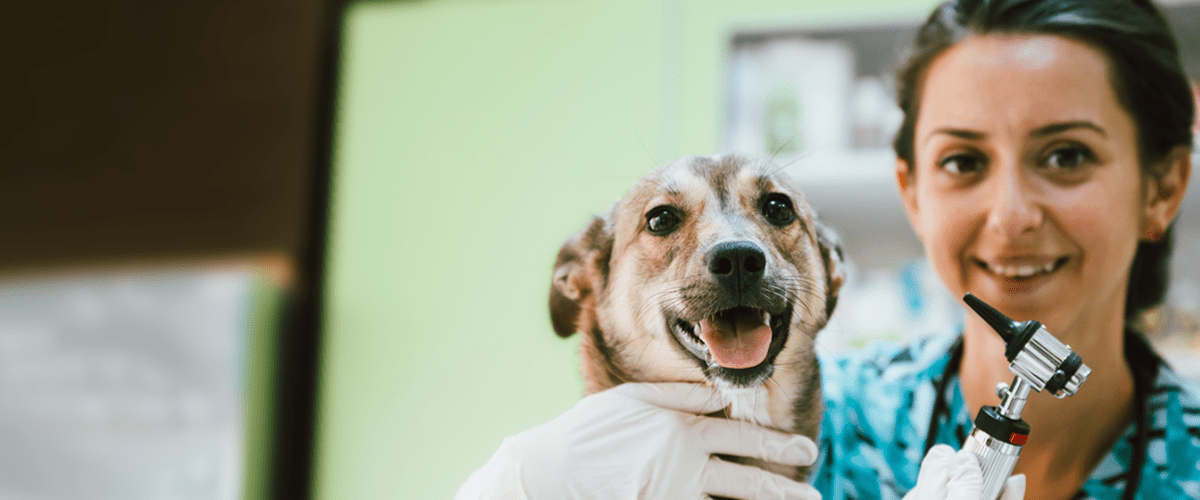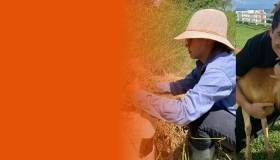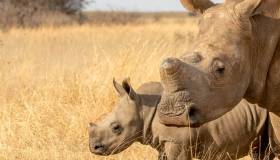
October 5, 2023 — Morris Animal Foundation stands out from many other organizations when it comes to funding focused on training the next generation of animal health researchers.
Dr. Mark Morris, Sr., the Foundation’s founder, once said, “The most important element in veterinary research is people, and the Foundation can make its greatest contribution to veterinary medicine by providing opportunities for students to become skilled in veterinary research.”
Over the years, the Foundation has embraced Dr. Morris’ vision, supporting veterinary students in all stages of their careers. Our first funded fellowship training grant was awarded in 1961, supporting a new and promising researcher in canine neurology and imaging. Since then, the Foundation has established and funds training grant programs to continually fill the pipeline with new talent to tackle emerging and future health challenges in dogs, cats, horses and wildlife.
Here are just a few of our granting programs helping educate the next generation of aspiring animal health researchers so we can help even more animals.
Veterinary Student Scholars
Biannually, the Foundation awards up to $5,500 to Veterinary Student Scholars (VSS) who participate in clinical or basic animal health research under the mentorship of an established investigator or scientist. With guidance from their mentors, the students participate in a research project that focuses on advancing the health and welfare of dogs, cats, horses or wildlife. These budding scientists have done studies ranging from disease research to rehabilitation to animal welfare.
Since the program's inception in 2005, almost 600 veterinary students have participated and gained valuable hands-on research experience. Many have published their findings in peer-reviewed journals as part of larger research projects. Some have become established investigators and continue the mentoring cycle to educate even more students and future researchers.
Some recent projects by this talented group of students include evaluating imaging for cancer in dogs, looking for potential biomarkers for chronic kidney disease in cats, studying a new treatment for gastric ulcers in horses, and investigating toxic hazards for mountain gorillas and other wildlife.
Training Fellowships
The Foundation’s Fellowship Training grants provide much-needed support and help launch the careers of full-time graduate students or postdoctoral PhD appointees interested in advancing animal health. The grant awards of up to $125,000 over 2 years provide salary support. Successful grantees dedicate at least 75% of their time to their funded research project under the mentorship and guidance of an established investigator at their respective institutions.
Since the inception of the fellowship training program in 2005, the Foundation has provided more than $12M of salary support to nearly 150 fellows. Some recent projects include understanding the genetics behind a deadly heart condition in cats, developing a predictive test for colic surgery complications in horses, and developing disease models to save endangered penguins.
This year, special funding is available to support trainees from historically underserved groups to foster more diversityin veterinary research. In this way, we continue to expand our training of new animal health researchers worldwide to help even more animals.
Special Partnerships
The Foundation often expands its training opportunities as funding becomes available or to meet an unmet need for skilled veterinary research professionals.
Since 2016, the Foundation has supported the training of three veterinary pathology residents at Colorado State University to support the Foundation’s Golden Retriever Lifetime Study. The residents help analyze all the biopsy samples submitted from dogs enrolled in the Study, which provides consistency in disease diagnosis, including cancer.
The Foundation also has a more than 15-year partnership with the College of Veterinary Medicine and Biological Sciences at Colorado State University, supporting the training of Ph.D. students in veterinary cancer biology. The program aims to prepare new scientists for careers in clinical academic practice and cancer biology research to address the shortage in these critical areas of the profession. Financial support for new talent is an investment in future cures and treatments for pet cancer.
We also collaborate with partners outside the veterinary college community. For many years, we co-funded 4-year training opportunities with Pfizer (now Zoetis); these were extensive scholarships for PhD students pursuing veterinary research careers. We've partnered with Blue Buffalo and Petco to fund veterinary nutrition fellowships and Smithsonian Global Health Program to help train new wildlife researchers globally.
How You Can Help
Veterinary researchers are the engines that drive advances in animal health. But with the expense of veterinary college and post-graduate work, the feasibility of becoming an animal health researcher can be daunting.
Our veterinary research training grants provide veterinary and advanced degree students with an opportunity and much-needed funding to explore and secure a career in veterinary health research. Our support also addresses the growing shortage of animal health research professionals and encourages innovation in solving today's and tomorrow's health challenges in animals.
Your gift today builds the future of animal health, supporting aspiring future veterinary researchers working to find better diagnostics, new treatments and even cures to improve the health care of dogs, cats, horses and wildlife globally.
Resources
Rodney Page Fellowship Established to Honor Work of Pioneer in Canine Research
Morris Animal Foundation, Blue Buffalo and Petco Partner in Nutrition Fellowship
Morris Animal Foundation Selects 10 New Fellowship Studies for Funding
2023 Fellowship Training Grants – What We Are Funding & Why
Providing Training Opportunities for the Next Generation of Researchers




